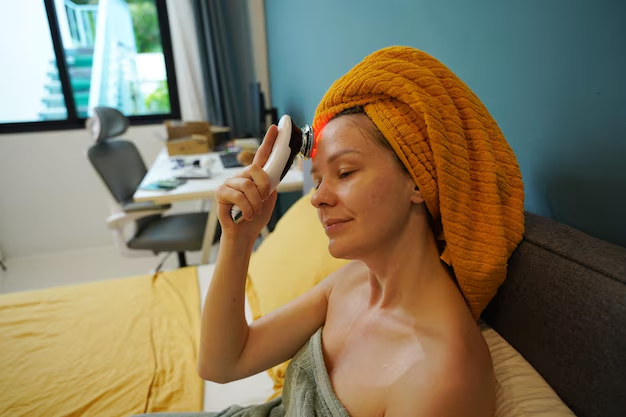The Ultimate Guide to Clearing Up Hormonal Acne Naturally and Effectively
If you're reading this, you might be one of the millions grappling with the frustrating condition of hormonal acne. We understand—dealing with persistent blemishes can sometimes feel like a never-ending battle. However, there is hope! In this guide, we'll explore proactive ways to address hormonal acne from various angles, equipping you with the knowledge to tackle it efficiently.
Understanding Hormonal Acne: What Sets It Apart?
Before diving into solutions, it's crucial to grasp what hormonal acne actually is. Unlike typical acne, hormonal acne is tied to fluctuations in your hormones, particularly androgens, which can increase oil production in your skin. Common characteristics of hormonal acne include:
- Location: Frequently appears on the lower face, such as the jawline and chin.
- Timing: Breakouts often coincide with menstrual cycles.
- Type: Cysts and deep, painful pustules are common.
Notably, hormonal acne isn't just reserved for teenagers—many adults find themselves suddenly dealing with breakouts well into their 30s and 40s.
Identifying Triggers and Patterns
One vital step in managing hormonal acne is identifying potential triggers. Here’s how you can start:
Keep a Skin Diary
Track your breakouts in relation to your menstrual cycle, diet, stress levels, and lifestyle habits. Patterns may emerge that can help pinpoint what exacerbates your acne.
Dietary Assessment
Your diet significantly impacts your skin health. Consider monitoring your intake of high-glycemic foods like sugars and refined carbs, as well as dairy products, which have been linked to breakouts in some people.
Stress Management
Stress is known to worsen acne. Practicing stress management techniques such as mindfulness, yoga, or simple deep-breathing exercises can make a noticeable difference in your skin's condition.
Holistic Lifestyle Changes to Combat Hormonal Acne
Implementing certain lifestyle changes can help manage hormonal fluctuations that contribute to acne. Let’s explore some natural methods:
Nutrition: Fuel Your Body Wisely
Balanced Diet: Emphasize whole foods rich in vitamins and minerals, like leafy greens, nuts, seeds, and fatty fish, which are known for their skin-healing properties.
Supplements: Consider omega-3 fatty acids, zinc, and antioxidant-rich vitamins like A, C, and E. They promote skin health and help balance inflammation.
Exercise and its Benefits
Regular physical activity helps regulate hormones and reduces stress. Aim for at least 30 minutes of moderate exercise most days of the week. This could include walking, cycling, or any activity you enjoy.
Sleep: Your Natural Skin Elixir
Quality sleep is essential for hormonal regulation. Aim for 7-9 hours per night, and establish a calming bedtime routine to improve your sleep quality.
Skincare Routine: Less Is More
Managing hormonal acne effectively involves a dedicated but gentle approach to skincare. Here’s how to create a routine that works:
Gentle Cleansing
Use a mild cleanser twice daily to remove excess oil and impurities without stripping your skin’s natural barrier. Avoid harsh scrubs that can irritate and worsen breakouts.
Targeted Treatments
Topical Retinoids: Encourage skin cell turnover and unclog pores. These may be beneficial, but be aware of potential irritation.
Salicylic Acid: Can penetrate pores to break down buildup and decrease inflammation.
Benzoyl Peroxide: Helps reduce bacteria on the skin, but use sparingly to avoid excessive dryness.
Moisturize Wisely
Opt for non-comedogenic, oil-free moisturizers to keep your skin hydrated without clogging pores. Aloe vera and hyaluronic acid based products are often well-tolerated.
Sun Protection
Protect your skin with a broad-spectrum SPF 30 or higher every day. Sun exposure can worsen inflammation and post-acne marks.
Navigating Treatment Options
While natural remedies and lifestyle changes help, some might need additional treatments to manage severe hormonal acne. Always consult with a healthcare professional before trying something new.
Over-the-Counter Options
Non-prescription products often include salicylic acid or benzoyl peroxide as active ingredients. They can be effective when used consistently.
Prescription Treatments
When over-the-counter options aren't effective, dermatologists can prescribe medications that regulate hormones or reduce inflammation. Examples include oral contraceptives and spironolactone.
Emerging Treatments
In recent years, light therapy has gained popularity as a non-invasive treatment for acne. LED treatments specifically target bacteria or reduce inflammation with minimal side effects.
The Role of Mental Health in Acne Management
Living with hormonal acne can impact your mental well-being. It's important to adopt a holistic approach that includes mental health care.
Building Confidence
Challenge negative thoughts about your appearance and focus on your strengths and personal achievements. Practicing self-compassion can help build resilience.
Support Systems
Don't hesitate to seek support from friends, family, or professional counselors. Connecting with others can reduce feelings of isolation and boost your confidence.
Embracing Your Skin’s Journey
Ultimately, addressing hormonal acne is a journey that involves patience and persistence. By understanding your unique triggers and adopting a multifaceted approach, you can better manage and potentially reduce breakouts. Remember, everyone's skin is different, so what works for someone else might not work for you—and that's completely normal.
Final Takeaways
Here’s a quick overview to help you navigate the challenges of hormonal acne with ease:
- 🗓️ Keep a Skin Diary: Track breakouts, diet, and stress for patterns.
- 🥗 Eat Balanced: Focus on nutrient-rich foods and consider supplements.
- 💤 Prioritize Sleep: Aim for 7-9 hours and maintain a calming routine.
- 🧴 Skincare Routine: Opt for gentle, targeted products.
- 🧠 Manage Stress: Employ techniques like mindfulness and yoga.
- 👩⚕️ Explore Treatments: Consult a dermatologist for persistent cases.
- 👐 Foster Self-Compassion: Engage in positive self-talk and seek support.
Patience and consistency are essential when dealing with hormonal acne. By embracing effective lifestyle changes and skincare strategies, you improve not only your skin's health but also your overall well-being. Remember, your skin is just one aspect of who you are, and you're on a path to empowerment and healthier skin. 🌟

